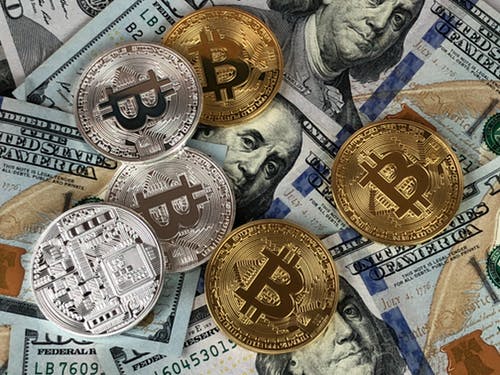What is bitcoin?
Bitcoin was developed in 2009 as a cryptocurrency Bitcoin markets allow people, in different currencies, to buy or buy bitcoins.
Bitcoin is a new currency, which an unknown individual developed in 2009 using the Satoshi Nakamoto alias. There are no middlemen transactions – that is, no banks! It is possible to use Bitcoin for reserving Expedia hotels, shop for Overstock furniture, and purchase Xbox games.
However, much of the hype is to become wealthy by trading. In 2017, the price of bitcoin went up to thousands.
What about bitcoin? Why you choose bitcoin?
Bitcoins can be used anonymously to purchase goods. Furthermore, foreign payments are simple and cheap since bitcoins are not bound or controlled in any country. Small companies may like them because credit card charges do not exist. Some people buy bitcoins as an investment, hopefully, they increase their value
Wallet for Bitcoin
In a "digital wallet," that is present in a cloud or on a user's device, bitcoins are held. This wallet is a type of online bank account that enables users to send or receive bitcoins, make payments for products or save their money. Unlike bank accounts, the FDIC does not have Bitcoin wallets. For more information on bitcoin and its trading system you can check bitcoin revolution.

Wallet Bitcoin PC
Cloud wallet: servers were hacked. Bitcoins of customers have left companies.
Software wallet: You can delete them accidentally. It can be destroyed by viruses.
How Bitcoin works:
Each bitcoin is a computer file that is saved to a computer or smartphone in the digital wallet (the BTC Trading symbol, although it is frequently used for 'XBT'). The following terms and meaning are understandable to understand how crypto-monetary works:
Blockchain: The open-source code of blockchain Bitcoin produces a publicly available directory. Each transaction is a bar which 'lines' into the code for the continued recording of each transaction. In the aftermath of Bitcoin, a technology from the blockchain is the subject of more than 6,000 cryptocurrencies.
Private and public keys: The Bitcoin wallet contains private and public keys that allow the user to digitally initiate transactions and provide proof of approval.
Bitcoin miners: miners – or peer-to-peer network members - then verify the transaction autonomously with high-speed computers in a 10-20 minute period. The miners' efforts in Bitcoin are paid for.
Understand different ways of investing in Bitcoin:
Bitcoin was intended as a foreign currency to replace government curers (fiat). This investment asset has been extremely volatile and can be used as part of transactions if traders accept Bitcoin since it was created in 2009.
Types of investments:
During the last decade Bitcoin has made various types of investment, including the trusting of Bitcoin and ETFs made up of Bitcoin-linked companies.
Buy Bitcoin Standalone:
First you can invest in Bitcoin using an app like Coinbase by purchasing a coin or a fraction of a coin. In most cases, you will have personal information and deposit money for the purchase of bitcoins.
You, therefore, have access to Bitcoin's price output and a right, like stocks or ETF, to buy or sell. You just need a safe wallet to access your order.
Greyscale's Bitcoin Trust (GBTC):
Greyscale Bitcoin Investment Trusts consults investors involved in Bitcoin investment in the stock market (GBTC). The use of Grayscale gives Bitcoin's digestible advantage. The GB and TC can manage those IRA, Roth IRA, another brokerage, and investor accounts to provide all investor levels with easy access to various accounts.
Investors get a product record that is one-tenth the worth of bitcoin. Each share of the GBTC should amount to $100 if the value of the bitcoin is net $1,000 for example. In reality, the GBTC maintains a fee of 2 percent not for the base value free of charge.
Investors are compensated for stability, usability, and liquidity (cash conversion). GBTC provides investors with less technical access to bitcoin markets' secure and offline storage mechanisms.
Often active in financial markets, it may sell on premium or a decrease in net asset value (NAV).
Enhanced ETF transformation data sharing:
The firm is a well-operated fund covering investments in the Arca Stock Exchange of New York from 15 separate branches. The firm participates in blockchain technology in other businesses and develops it. The net price ratio of BLOK is 0,70%
10 Private Index Fund Bitwise:
The 10 Human Resources Fund The bitwise 10 Large Cap Crypto Index is a big monkey bag that offers the protection and comfort of classic ETF applications.
10 Private investments require a minimum of $25,000 and a commission ratio of 2.5%. Like the GBTC, assets are stored in cold storage offline to provide their investors with the necessary protection.
Conclusion:
For the past two years, Bitcoin has been squarely in the media limelight. Like other revolutionary technologies, even if Bitcoin loses relevance, cryptocurrencies have made the point: institutionally supported internet transactions can be alternative.







